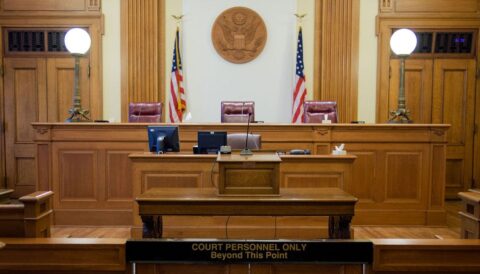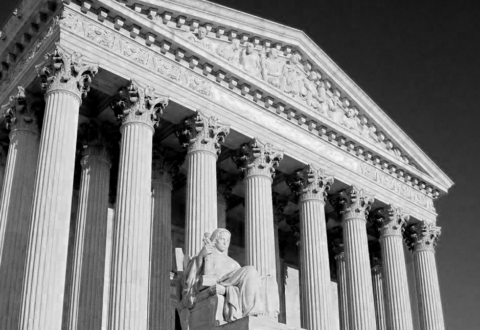Due Process and the Courts

Report Highlights Need for Appointed Counsel for Detainees Facing Removal
A report issued this week by the City Bar Justice Center highlights one of the most serious flaws of the removal process: noncitizens are not appointed a lawyer to represent them. The report focuses on the efforts of the City Bar Justice Center and other nonprofit organizations to increase access to legal counsel at the Varick Federal Detention Facility in Manhattan. According to the report, a significant portion of the detainees housed at Varick had possible meritorious claims to relief from removal, such as asylum or an avenue for obtaining a green card. Read More

Board of Immigration Appeals Rules Not to Reopen Old Deportation Cases
A decision by the Board of Immigration Appeals (BIA) last week provides yet more evidence that broken laws create broken government. By refusing to protect eligible applicants for adjustment of status from deportation, the Board eased the way for the Immigration and Customs Enforcement (ICE) to deport someone whose legitimate green card application is pending with United States Citizenship and Immigration Services (USCIS). Read More

U.S. Supreme Court Considers “Collateral Consequences” for Immigrants in Criminal Cases
Today, the U.S. Supreme Court heard arguments in a case posing the question: “If a criminal defense lawyer tells his or her client not to worry about the immigration consequences of pleading guilty, but that advice is wrong and in fact the client will be deported as a result of pleading guilty, can the client withdraw the plea?” In this case, Padilla v. Kentucky, the Supreme Court of the State of Kentucky said no: even incorrect advice about the immigration result is not a sufficient reason to reopen a case because deportation (now known officially as “removal”) from the U.S. is a “collateral” consequence—that is, not something directly related to the criminal case. Kentucky’s lawyer argued today that the High Court should uphold that decision. Read More

Supreme Court to Hear Two Cases Affecting Fair Process for Immigrants
Today, the United States Supreme Court opens its October session. Among the cases it will hear this term, two may have a significant effect on immigrants. The first case involves the intersection of the criminal justice system and immigration and the important role that lawyers play in safeguarding the rights of immigrants. The second case deals with immigrants’ access to federal court review—review which provides necessary oversight of government decision-making in immigration cases. These cases present the Supreme Court with opportunities to reaffirm that immigrants must be afforded fair process and a meaningful opportunity to be heard. Read More

Immigrants with Mental Disabilities Are Deprived Their Day in Court
The U.S. legal system is premised on the idea that every party in a case is afforded his or her day in court and a meaningful opportunity to be heard. Yet, for individuals with mental disabilities facing deportation from the United States—including those whose removal will mean being permanently barred from ever returning—that day may never arrive. Read More
Make a contribution
Make a direct impact on the lives of immigrants.

